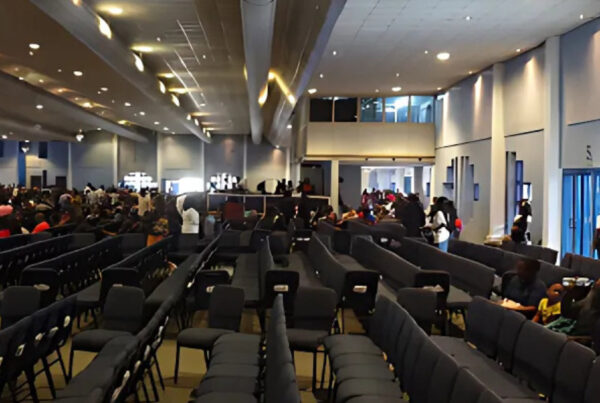In the shadow of rising inflation, rental spikes, and precarious employment, gig workers across the United Kingdom have become some of the most vulnerable to economic shocks. Many are migrants, young adults, or parents navigating multiple part-time jobs to stay afloat. But as state support thins and burnout grows, churches, long bastions of spiritual support, are now becoming unexpected economic lifelines.
From city cathedrals to suburban chapels, a quiet movement is forming faith communities reimagining their role as not only spiritual sanctuaries but also economic safety nets. A growing network of churches across cities like London, Birmingham, Manchester, and Glasgow is offering practical support to gig economy workers, from financial literacy programmes to co-working hubs, and even advocacy initiatives for fairer employment terms.

At the heart of this resurgence is what church leaders are calling a “theology of enough.” Rev. Denise Campbell, vicar at St. Luke’s in South London, says her parish has started weekly sessions called “Tables of Enough,” where gig workers—Uber drivers, delivery riders, freelance nannies, and content creators—share meals and resources.
“We had a man who drove for two apps, slept in his car, and showered at gyms,” Rev. Campbell recalls. “His prayers weren’t for miracles—they were for margin, for just a little breathing room.”
What began as a soup kitchen during the pandemic has grown into a more robust support network. Today, St. Luke’s partners with a legal aid clinic to help workers understand contracts and rights and hosts monthly budgeting seminars led by volunteer accountants from nearby firms.
The model is catching on. St. Mary’s Church in Manchester opened a “Rest & Recharge” centre where gig workers can nap, charge devices, access free coffee, and use Wi-Fi between jobs. “It’s a sacred response to a secular problem,” says Rev. Ethan Lo.
For many congregants, the work is deeply personal. One volunteer, Judith Ayeni, delivers Uber Eats during the week. “I know what it means to calculate every drop of petrol,” she says. “Church isn’t just about Sunday—it’s where I go to be seen, to not be invisible.”
Churches are also tithing in new ways. Instead of just encouraging financial giving, several congregations now ask members to tithe “time” each month for community care. That includes mentoring young freelancers, hosting free photography headshot days, or even co-signing apartment leases for workers with unstable income.
The Church of England’s Bishop of Kensington, Rt. Rev. Graham Tomlin recently praised the trend. “It’s not about charity,” he said during a diocesan meeting. “It’s about solidarity. The Church must once again become a place where work, worth, and worship intersect.”
The work in the U.K. is part of a wider trend. The Evangelical Alliance and organizations like FaithAction and Church Urban Fund have noted a rise in churches creating “economic response ministries.” These include vocational upskilling sessions, emotional burnout counselling, and partnerships with local councils for social housing referrals.
A 2024 report by the Centre for Theology and Community found that over 65 percent of churches in urban areas now regularly engage in some form of economic justice work. “We are seeing churches act almost like informal unions or support cooperatives,” said the report’s author, Dr. Hannah Milton.
Yet challenges remain. Many clergy say their efforts are overstretched and underfunded. Churches are now lobbying Parliament to create economic hardship grants for faith-based initiatives.
For gig workers like Marcus, a freelance delivery rider from Zimbabwe, the impact is life-altering. After an injury took him off the road, he found refuge in a local Pentecostal church that helped him secure short-term housing and re-skill as a graphic designer.
“The church became my employer, my family, and my bank,” he says. “They gave me dignity.”
The hope, leaders say, is not just to help workers survive, but to equip them to shape the system itself. Some churches are already piloting cooperatives, where workers pool resources to negotiate better rates and protections.
As the gig economy expands, and the cost-of-living crisis deepens, these church-led responses may point the way to a future where faith not only speaks to the soul—but builds frameworks for economic justice.







